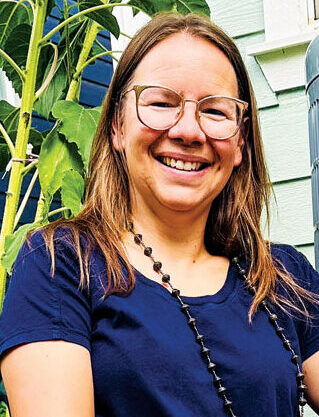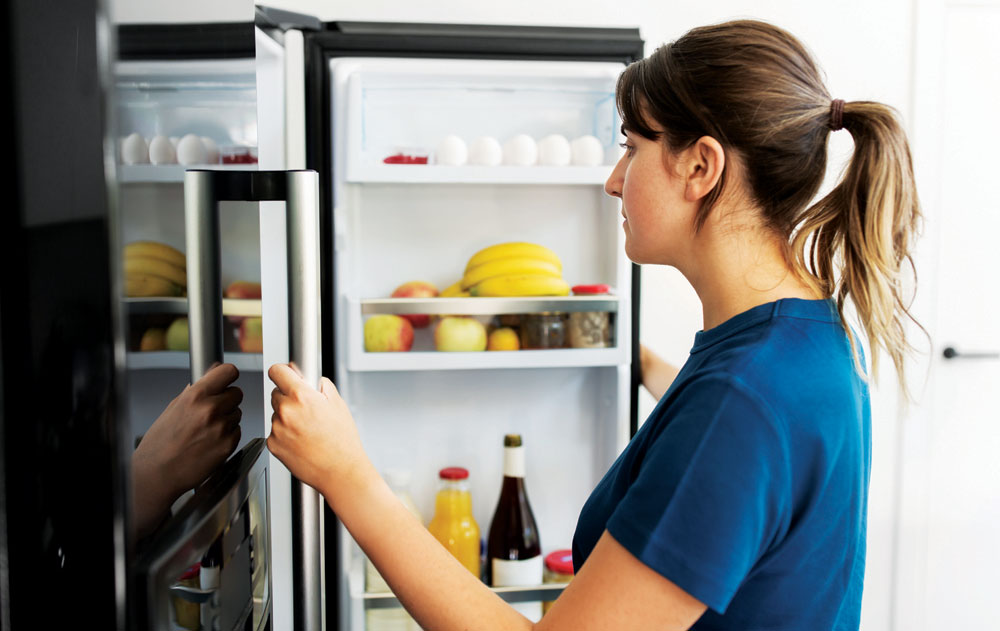 As we turn the calendar to 2025, it’s time to set a “green” New Year’s resolution. This year, I propose we work together to stop food waste.
As we turn the calendar to 2025, it’s time to set a “green” New Year’s resolution. This year, I propose we work together to stop food waste.
I’m finding inspiration from my grandmother, who raised 11 kids on a central Iowa farm during the Great Depression and World War II. She was part of a culture that embodied “waste not, want not,” and saw food as so much more than a commodity or an ingredient to make a photogenic dish come together. On the special occasions Grandma joined us for a restaurant meal, she would pull plastic baggies from her purse and carefully package all leftovers. Even a third of a sandwich would join the crackers from the table, ready for a hangry grandchild or her own meals. Jars of green beans, tomatoes, and even beef (all from her farm) lined wooden shelves in my grandparents’ basement. My husband—a fellow Midwestern transplant—counts the unforgettable smell of kraut-making among memories of his grandparents. Visits would often end with kids lugging jars of veggies to the car, to be eaten when the time was right.
My life obviously differs from that of my grandmother—who took on work as a nanny following her eighth grade graduation, before moving to the farm at age 20. I am on the privileged side of the food waste issue, unlike readers who may live in food deserts, or count themselves among the 15 percent of Denver residents currently experiencing food insecurity. Honoring different experiences and identities can help us work together to move from a culture of food waste and insecurity, to a culture that respects food.
There is no “one size fits all” solution to end food waste. However, unlike other environmental problems that seem too big for ordinary people to address, food waste is a household matter. The EPA reported that households are responsible for 40 percent of food waste, roughly equal to food wasted by restaurants, hotels, and sports venues combined.
In 2019, U.S. families generated 26.5 million tons of food waste, sending nearly 16 million tons to the landfill, where it produces methane as it decomposes. Methane is an especially potent greenhouse gas that has 80 times the warming power of CO2 in its first 20 years in the atmosphere. Methane is also responsible for ground-level ozone, a pollutant that aggravates lung conditions. Stopping food waste from reaching landfills would reduce 58 percent of methane emissions. If the average Denverite stopped tossing three pounds of edible food each week, we could also conserve all the resources that go into food production, like water, land, labor, and all the fossil fuels burned to transport and package that food.

“Shopping” your own refrigerator is one way of reducing food waste. Photo from Adobe Photos
How do we move from a culture of food waste and insecurity to a culture of food respect in 2025? It’s important to promote food security and support policies and organizations that fight food waste. It’s equally important to make “waste not, want not” a part of your kitchen routine.
I’d suggest starting by taking note of common foods that spoil before eating them, and not buying those anymore.
In our house, I no longer feel pressure to “liven up” lunch with ham, turkey, and hummus, having composted spoiled packages of these too many times. Instead, our standard lunchtime routine is to “shop” the refrigerator for leftovers, or the pantry for about-to-expire foods. Families can also freeze food before it goes bad or make “rescue” recipes like smoothies and quick breads for imperfect fruits. This has the added bonus of saving plastic packaging and money. You can also check out apps that provide you recipes for random combinations of ingredients to use up. Other apps can connect you to local restaurants, gardens, or wholesalers that have giveaways of food about to expire. I know there must be other useful tips. Send me your ideas (cfoust2@msudenver.edu), and let’s create a culture of food respect in 2025.
Cristina Foust is a professor of Communication Studies at MSU Denver, and co-founder of the Westerly Creek Elementary School Green Team. Email her at cfoust2@msudenver.edu or reach out on Facebook.




0 Comments